While everyone else was making plans to have a great 2020, a pandemic introduced itself to the world.
First, it announced its presence in the Chinese province of Wuhan before going global, touching every continent, except Antarctica; touching almost every nation and almost every neighbourhood.
The results have been the devastation of the global economy and human relations. While there are people or industries that have remained untouched, millions have been negatively affected by the consequences of a pandemic.
Dreams have been shattered. Homes broken. Businesses closed and houses robbed of breadwinners. The social fabric of life as we know it has been changed, perhaps forever. Yet, even with these changes, there is no end in sight for the slow-burning effect that the virus is having on entire communities.
One such community is the hospitality industry.
On Christmas Eve of 2019, Omar Juma was busy hurrying between guests at a hotel in Lamu. He was midway through a shift that would last an entire week. In between guests, he would peek into the family WhatsApp group, catching up on what his siblings and parents were up to.
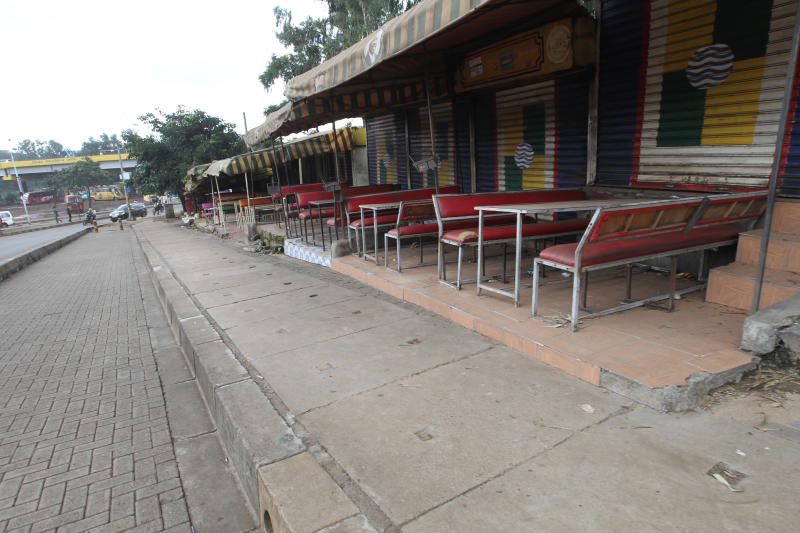

At that time, he would have given anything to be with them during the festive season. But he put his head down and carried on
“All I wanted to do at that time was leave work,” he said. “Now, all I can think of is what I would do to get back to work.”
The past six months haven’t been easy.
“In April, as we were preparing for the Easter weekend, we received emails terminating our contracts,” he says.
That spelt the beginning of a different kind of life.
The comfort brought about by employment was pulled from under his feet and like many of his colleagues, he was left exposed to the elements of life. Uncertainty. Fear. Hopelessness. Helplessness, and a sense of confusion.
This was not unique to him though.
In September of 2020, the Tourism Cabinet Secretary projected that the industry had lost some 2.5 million jobs in five months. This means 500,000 jobs were being haemorrhaged every month, more than 16,000 jobs being lost every day.
To date, facilities across traditional tourism destinations have shut down indefinitely.
This does not just mean that another hotel has fallen off the directory. It translates to households losing much-needed incomes at a time of great uncertainty.
“The hotel sector has experienced an abrupt and unprecedented drop in hotel demand that has led to closure of most hotels,” a tourism industry report by the Kenya Tourism Board states. “Consequently, some hotels have sent some staff on paid and unpaid leaves.”
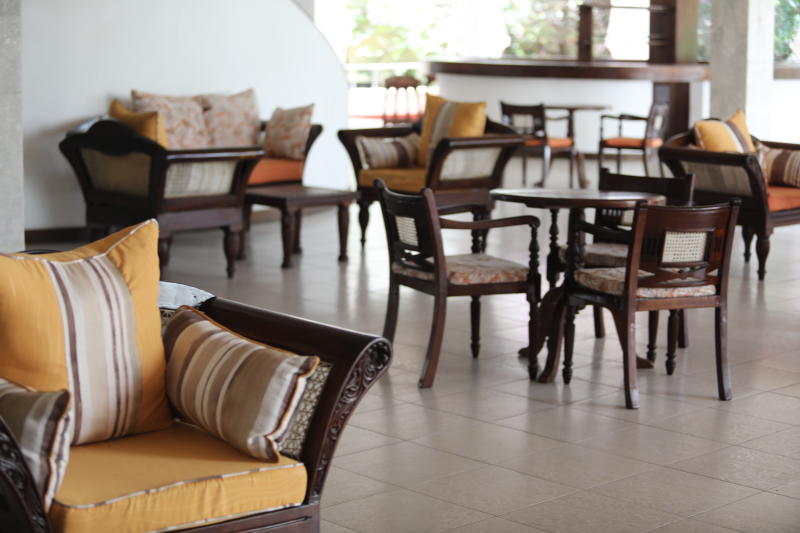

Juma fell in the latter category. Sent home on unpaid leave and unsure of what the future held. And his case points to a greater tragedy. That of a depressed economy in a country in dire need of every shilling from the industries that make up its backbone.
Since independence, tourism has remained a major foreign exchange earner for Kenya. Any hit in the industry will not be taken well by the glass chin that is the Kenyan economy. Amid the gloom, the National Treasury has predicted a three per cent growth.
The World Bank has revised this number further, predicting a 1.5 per cent growth. Independent analysts have predicted, for the first time in Kenya’s history, a negative growth for the economy, perhaps a more accurate description of the state of the nation.
Juma and others working in the accommodation and restaurant field account for 35 per cent of the workforce within the tourism sector. This was the group hardest hit, with most organisations reducing the number of employees through paid and unpaid leave, pay cuts or downright sackings.
“We will take some time to bounce back,” says Mike Macharia, the chief executive of the Kenya Association of Hotel Keepers and Caterers.
Macharia says things will not get better any time soon.
“We are heavily reliant on the external market that provides around 1.3 million tourists a year who will not come this year. This is a huge number,” Macharia says, adding that there are certain tourism circuits like Nairobi, Samburu and Amboseli that are almost dead.
“Things are not good.”
The impact is not just at individual level. County governments, too, are feeling the heat.
Closure of hospitality businesses (hotels, restaurants, clubs and bars) as a result of travel restrictions and the call by the government to stay home and observe social distance has greatly diminished revenues to county governments.
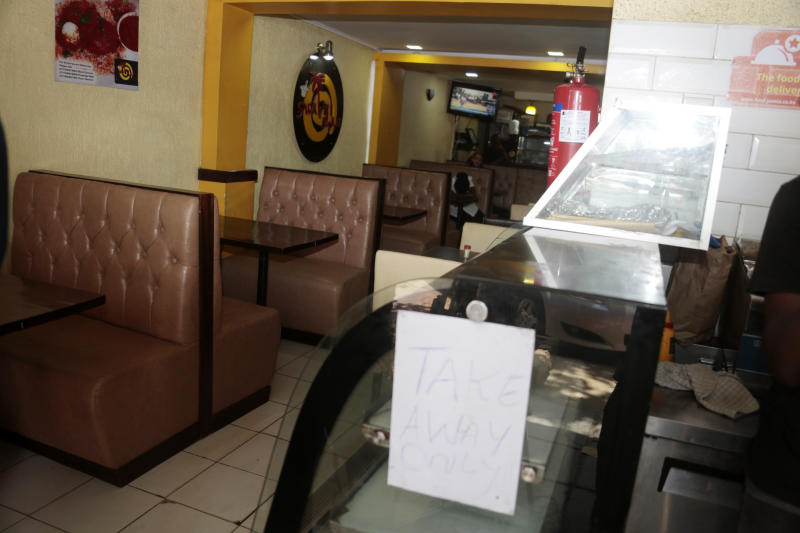
Curfews effected during the worst waves of the disease rendered many tourist activities in all counties to an inertia mode, leading to huge decline in revenues. All these greatly reduced not just the international tourism arrivals, but the movement of domestic tourists as well. The Covid-19 cloud overshadowed travel plans for hundreds of thousands of people.
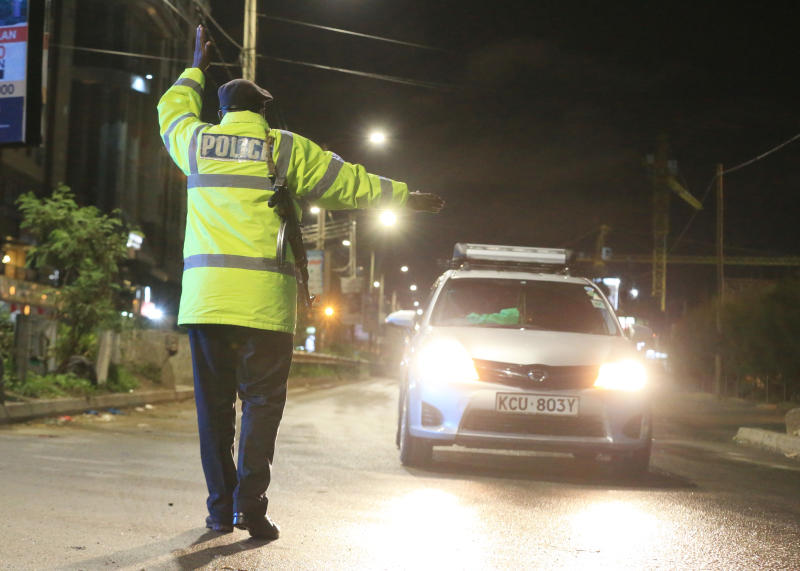
But these losses in the tourism sector are not unique to Kenya. Globally, key markets have seen a marked reduction in earnings. It is estimated that 3.4 billion dollars per month has been lost since the pandemic broke as a direct consequence of the interrupted air travel.
Revenue lost from the postponement or cancellation of exhibitions was estimated at Sh145 billion. Some 50 million jobs have been lost globally. When the pandemic was at its worst, it is estimated that up to 96 per cent of all worldwide destinations introduced travel restrictions, with around 90 destinations, including Kenya, partially or completely closing their borders.
If you Google Kenya, teacher, school and chicken, all 10 results on the search engine’s first page will be about one man, Joseph Maina. Although Maina always had a feeling that fame would come his way, its path to him remained unclear.
A pandemic and a cruel hand from fate combined to catapult him into an almost global fame. But not for the reasons he would have wished.
Not for good results in national exams as he would have wished. Not from his school producing the best teacher in the country.
Not for anything academic, but for a decision he came to when he realised that the schools closure would endure for longer than intended.
While a few private schools kept up with teaching, Maina could not do the same for his Mwea Brethren School. It is the early stages of the institution’s death that brought him the unintended fame that he now finds himself in.
“We had to do something to survive,” he says. “You cannot just sit and watch yourself die.”
With revenues from the tuition fees he charges drying up, Maina turned to chicken rearing.
Where children once opened their favourite story books, chicken roam freely. Where little feet once pattered the floor, chicken spurs dig in for grub. The excited chatter of children has now been replaced by the constant clucking of layers pecking at marsh.
Maina has seen his investment move from education to agriculture in less than six months.
The impact this has had on him has been immense. But the impact school closures have had on children has been far worse. These losses, though, were not in the grand scheme of things.
On May 7, Education Cabinet Secretary George Magoha defended a stance that had been taken earlier by the government. After institutions were shut, the government remained pretty upbeat that learning would continue with minimal hitches. The prescribed solutions were simple. Online classes, through mobile phones, the internet as well as on radio, would continue.
E-Learning programmes spearheaded by the Kenya Institute of Curriculum Development (KICD) were supposed to keep students abreast of classwork. But long standing inequalities within the Kenyan society were certain to dash whatever hopes that were pinned on the e-learning programme.
“The government has the best of intentions but perhaps it is not possible to reach all the children at the state of our development and so the issue of the government reaching everybody should not be a point of argument,” Mumias East MP Benjamin Washiali, who had petitioned Parliament to seek answers from Prof Magoha over the online learning, said.
Lack of reliable electricity and lack of access to internet or mobile devices, including radios to attend the classes, proved too high of a hurdle for parents. Inevitably, the students have seen an entire academic year retreat behind facemasks.
The empty classrooms and dusty staff rooms across the country reminded a nation of a host of broken promises and false premises. The broken promise of the school laptops programme and the false premise that Kenya is one of the most connected nations on the continent. The reality, although it came in late, reminded us of the possibilities that corruption has robbed Kenyans of, as well as the disparities that exist among us as a people.
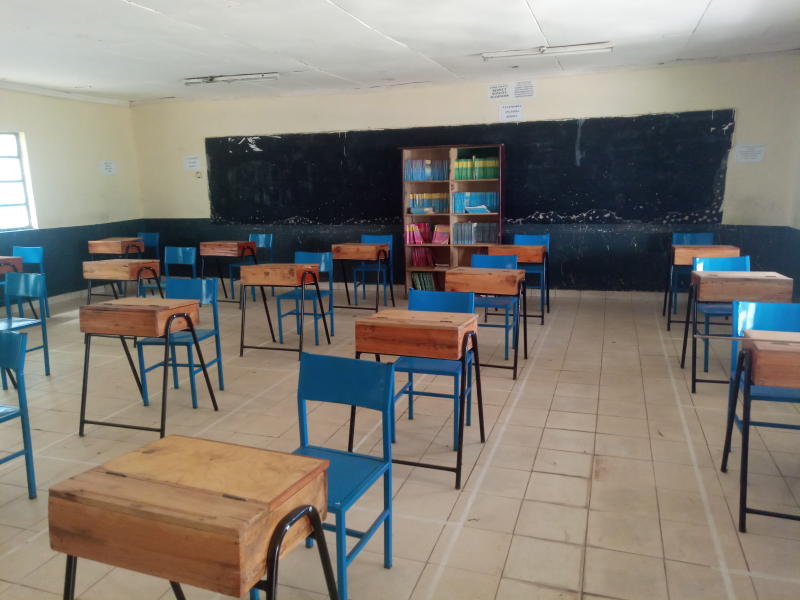
“Many children lack access to the internet, which is increasingly indispensable for education,” read a report by Human Rights Watch on the impact of Covid-19 on children’s education in Africa. “None of the students have access to internet-enabled smartphones. Only a handful have access to mobile phones that can support calling and texting functionalities. Digital learning is not an option.”
And as selective learning went on, students and parents were forced to make hard decisions.
For those who could afford e-learning, they had to limit the number of topics they would learn on any day.
Makena, a 17-year-old girl from Nairobi, said she prioritised her limited internet data to download learning material for mathematics and science.
“Subjects like Christian Religious Education, English, or Kiswahili language, I read from the textbooks that I have,” she told a Human Rights Watch team that was investigating the impact of coronavirus on education around Africa.
The HRW investigation was conducted between August and September 2020, and it also raised issues of stress, anxiety, isolation and depression, which they linked to lack of contact with their school community.
“I know my school has a counsellor, but we were never given contacts after we closed and before this, I had never gone to him,” another student told HRW.
Parents too were faced with a different set of burdens. Although kept off from paying tuition fees for terms that were to begin during the lockdown, many were burdened by costs associated with trying to continue educating their children during the closures.
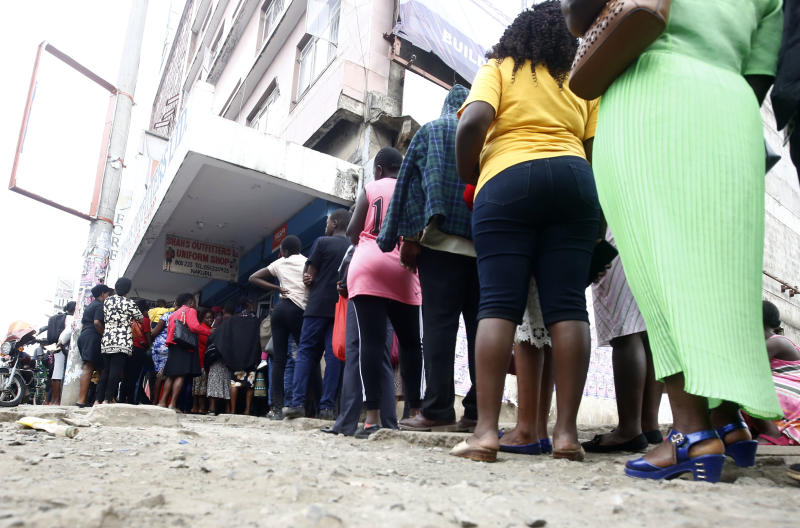
Plus, there was the issue of occupying their children’s time, keeping sons off crime and girls safe from predators who would prey on them, resulting in sexual abuse and unwanted early pregnancies. In fact, in June, Plan International linked a rising number of teenage pregnancy to the lockdown, claiming that up to 4,000 adolescents may have visited health facilities for pregnancy related services.
“Even before the crisis, girls and young women in Kenya faced considerable challenges in accessing essential health information and services. Now, amid a pandemic that is straining even the strongest healthcare systems, there is a real risk that sexual and reproductive health and rights will be deprioritised, with devastating consequences for girls and women,” Kate Maina-Vorley, Plan International Kenya’s Country Director said in June at the release of the statistics.
And Mania is not the only school owner who was out of options.
Data from the Kenya Private Schools Association shows that more than 90 per cent of private school staff have been laid off — some permanently, others until things get better
The association’s Chief Executive told the BBC that 133 institutions were shut down as the virus moved across the country, taking away livelihoods for hundreds of thousands of staff members.
Although a calling, many others in his profession were listening to other voices apart from the one instructing them to teach young minds. Across the country, teachers turned playgrounds into vegetable patches. Others switched careers to become taxi drivers. Many others opened up retail stores. While others yet were swallowed up in the daily humdrum of life, resigning their collective fates to counting the year lost.
Maina, his students, teachers and parents could always pick up the pieces of their journey in education. For others though, nothing really illustrates loss like death. Three months after the first case of Covid-19 was recorded in the country, Kenyans woke up to the news of the death of Charles Bukeko alias Papa Shirandula.
His passing, from Covid-19 related complications on an early morning, shocked the nation. His death reminded the nation of the clear and potent danger posed by the disease. Since his death, many more have died.
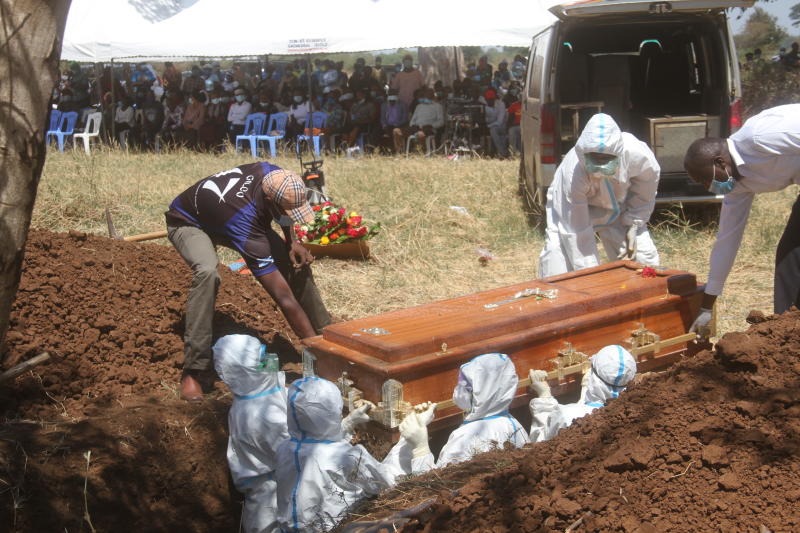
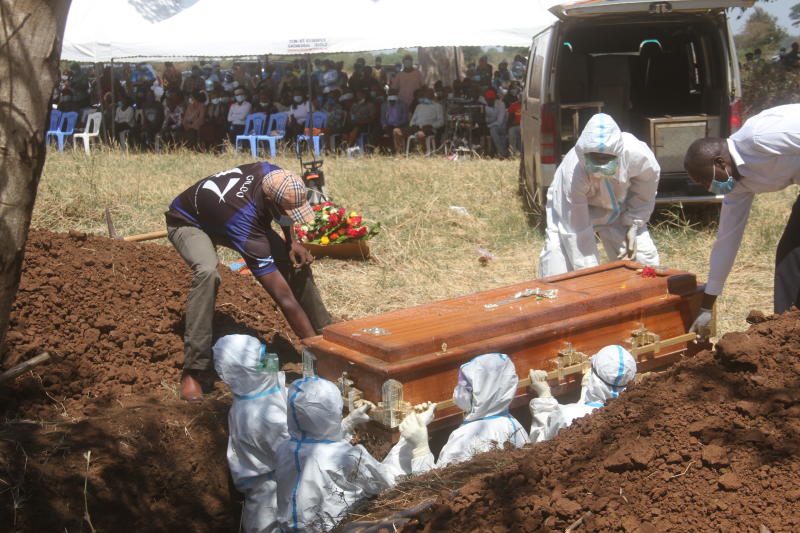
Families have buried loved ones in a rush, in a bid to adhere to the strictly set guidelines from the Ministry of Health. Wives have buried husbands whom they have spent decades together with. Sons have buried both parents in quick succession.
On July 25, tragedy struck the family of former Kisauni MP Ramadhan Kajembe. On that day, his wife, Aziza Kajembe was buried after dying form Covid-19 related complications. As she was laid to rest however, Ramadhan, her husband of many years, was not by her side.
Instead, he was in the ICU of a hospital fighting for his life, also as a result of Covid-19 complications. He died eight days later, becoming another grim statistic in those who have been claimed by the virus.
To date, Kenya has recorded close to 70,000 infections of the virus. Of these, some 1,200 people have died and more than 44,000 people have recovered. But these statistics pale in light of figures from elsewhere in the world.
Europe and the Americas continue to register the highest numbers of infections as well as fatalities, with some countries such as the United States of America recording up to 1,500 deaths per day.
Although they say time heals all wounds, some are so deep that even time itself cannot patch up.
Heads of States, such as British Prime Minister Boris Johnson, have spent time in hospital over the virus. Former presidents, such as Ghana’s Jerry Rawlings, have died from the disease.
The world has seen Covid-19 deniers such as Tanzania President John Pombe Magufuli leave it all to chance. It has also seen the more cautious such as Kenya’s President Uhuru Kenyatta and Uganda’s Yoweri Museveni veer towards caution and lock down their countries.
Whichever side of the line you are on, a huge chunk of 2020 has disappeared under the Covid-19 cloud, with the world straining to see the silver lining around all this.
Credit: Source link